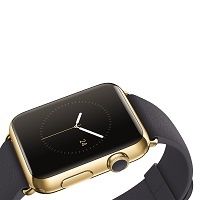Apple Watch Shows Promise as Screening Tool in Underserved Communities
A new study of more than 5000 patients in a rural community in India suggests the Apple Watch and its A-fib software could serve as a valuable screening tool in underserved communities and developing countries.

Results of a study born out of an overseas medical mission are suggesting the Apple Watch and its ability to detect atrial fibrillation could serve as a valuable screening tool in developing countries.
Data from the study, which sought to evaluate the specificity of the Apple Watch A-Fib app for detecting cardiac arrhythmias in rural India, was presented by investigators at the American Heart Association (AHA) 2019 Scientific Sessions in Philadelphia.
To test the software’s ability, investigators conducted a study which involved screening more than 5000 “healthy volunteers” from an underserved rural population in India for common cardiovascular risk factors. The mean age of the study population was 53 years and 55% (n=3025) of participants were female.
Investigators also collected information related to the epidemiology of patients. The prevalence of tobacco use in the past among patients was 1.8% (n=99) and a history of alcohol use was present in 8.9% (n=490).
An alarming trend among “healthy volunteers”, 87% (n=4785) had hypertension but less than 10% of this patient group were on medication. Additionally, 66% of all patients in the study had no idea of the location of a cardiologist—in those who had, the mean distance to the nearest cardiologist was 8.07 miles.
When screening for dysrhythmias, investigators noted a rhythm was undetectable in 14.2% (n=784) of patients. Sinus tachycardia was identified in 5% (n=291) and 1.2% (n=71) had incidence of atrial fibrillation.
All dysrhythmias were confirmed with a standard 12-lead EKG and the Apple Watch demonstrated 100% sensitivity and 100% specificity. Investigators noted abnormal findings were communicated with the nearest cardiologist.
“In underserved regions with various rate limiting factors and healthcare shortcomings, the use of compact portable digital health monitors may be useful in identifying patients who are at risk for CV event,” investigators wrote.
This was not the only study involving the potential of the Apple Watch to make waves at AHA 2019. CHIEF-HF—the first completely decentralized, mobile, indication-seeking clinical study was announced by Janssen Pharmaceutical Companies on the first day of the conference.
This study, “Expecting the Unexpected Beyond Borders: Apple Watch as a Global Screening Tool for Dysrhythmia in the Developing World,” was presented at AHA 2019.